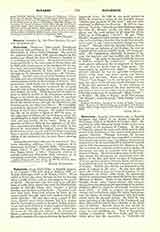

Navarrete, DOMINGO FERNÀNDEZ, Dominican missionary and archbishop, B. C. 1610 at Peñafiel in Old Castile; d. 1689 at Santo Domingo. He received the religious habit about 1630 and on completing his studies was offered the chair of Thomistic theology in several Spanish universities. He preferred, however, to devote his life to the conversion of the heathen, and in 1646 with twenty-seven of his brethren left his native land and proceeding by way of Mexico, arrived in the Philippine Islands, June 23, 1648. He taught theology in the Dominican University of St. Thomas, Manila. In 1657 with several of his brethren he went to China and, after learning the language, took up missionary labor chiefly in the province of Fo-kien. The persecution which broke out in 1665 brought disaster to the missions. Forbidden to preach, he occupied himself with writing, hoping by this means to spread and confirm the faith. Being hampered too much he went in 1673 as prefect of the Dominican mission to Rome to lay before the authorities there the question of Chinese Rites which had reached an acute stage between the Jesuits on one side and the Dominicans and Franciscans on the other (see China). He was highly esteemed by Innocent XI, who wished to make him bishop of the Chinese missions. He refused the honor, but on his return to Spain in 1677 the pope, at the suggestion of Charles II, forced him to accept the Archbishopric of Santo Domingo, where he labored with zeal and fidelity till his death. While on the question of Chinese Rites he was opposed to the Jesuits, sometimes attacking them very severely; in his diocese he entertained the highest regard for them. In his letters to the viceroy and to the king, requesting them to permit the fathers of the Society to establish a college in his residential city, he pays them a glowing tribute. Among his principal works may be mentioned “Tratados históricos, politicos, éticos y religiosos de la monarquía de China” (Madrid, 1676); “Gatechismus, lingua sinica”, 2 vols; “De mirabilibus Dei nominibus, lingua sinica,” 2 vols; “Praeceptor ethnicus ex optimis quibusque Sinensium libris extractus, et ex eorumdem sententiis concinnatus, lingua sinica.”
JOSEPH SCHROEDER

